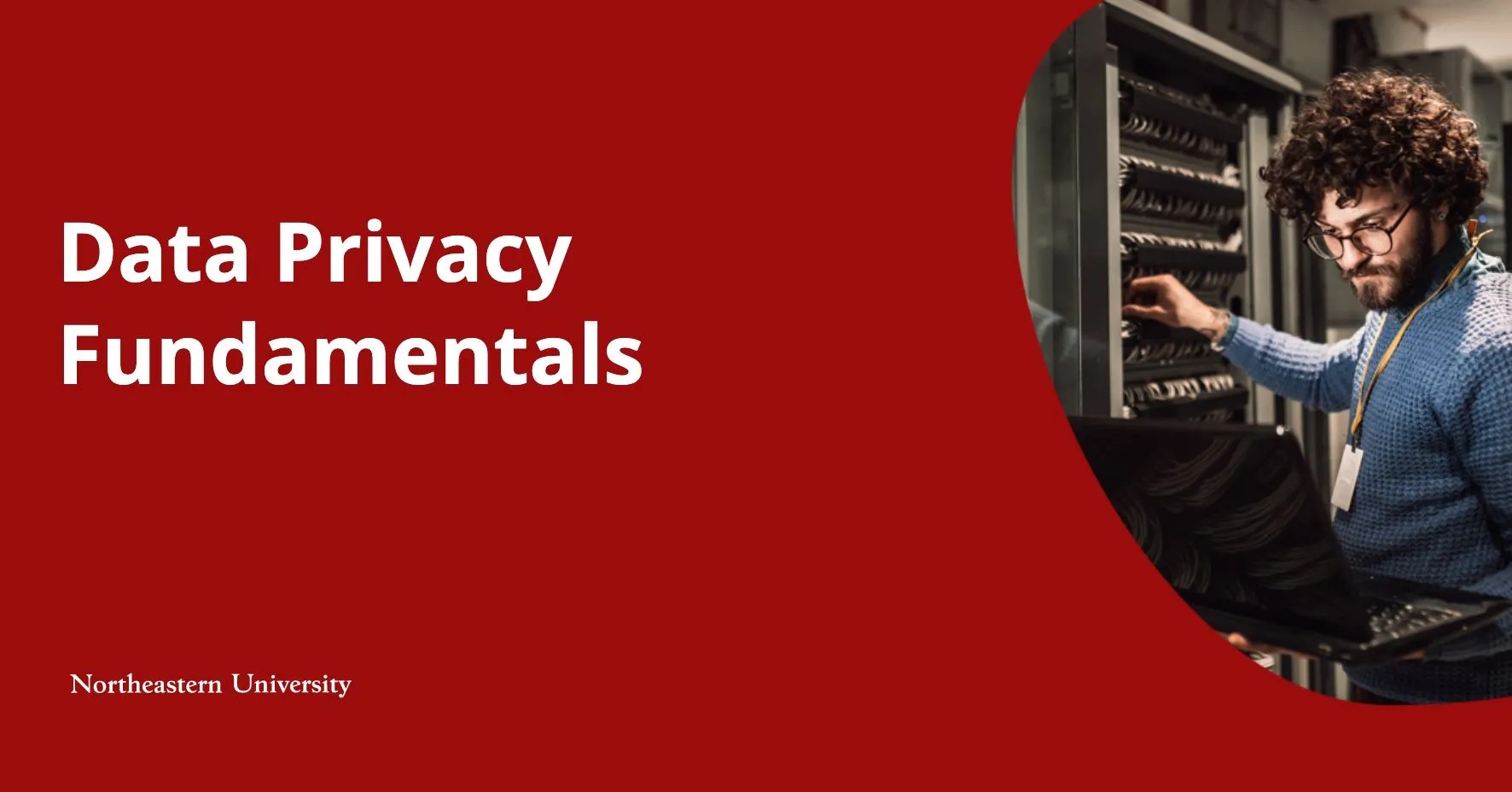
Data Privacy Fundamentals 
This course provides an overview of data privacy fundamentals, helping participants understand the evolution of data privacy and its importance to organizations and individuals. It is designed to introduce data privacy to a wide audience. ▼
ADVERTISEMENT
Course Feature
![]() Cost:
Cost:
Free
![]() Provider:
Provider:
Coursera
![]() Certificate:
Certificate:
Paid Certification
![]() Language:
Language:
English
![]() Start Date:
Start Date:
Self Paced
Course Overview
❗The content presented here is sourced directly from Coursera platform. For comprehensive course details, including enrollment information, simply click on the 'Go to class' link on our website.
Updated in [March 06th, 2023]
This course, Data Privacy Fundamentals, provides an introduction to the importance of data privacy and the history of privacy. It covers topics such as defining privacy, control over personal information, and transparency and encryption. The course is taught by Kay Mathiesen, Evan Selinger, and Christo Wilson.
In Lesson 1, students will learn why privacy matters and the history of privacy. In Lesson 2, students will explore the concept of data privacy and information ethics. In Lesson 3, students will define privacy and explore data privacy goods. In Lesson 4, students will learn about control over personal information and transparency and encryption.
At the end of the course, students will have a better understanding of data privacy and the importance of protecting personal information.
[Applications]
After completing this course, participants should be able to apply the knowledge gained to their own data privacy practices. They should be able to identify the ethical implications of data privacy and understand the importance of controlling personal information. They should also be able to recognize the value of transparency and encryption in protecting data privacy. Finally, they should be able to apply the principles of data privacy to their own work and personal lives.
[Career Paths]
1. Data Privacy Analyst: Data Privacy Analysts are responsible for ensuring that organizations comply with data privacy regulations and laws. They analyze data privacy policies, assess risks, and develop strategies to protect data. As data privacy regulations become more complex, the demand for Data Privacy Analysts is expected to increase.
2. Data Privacy Officer: Data Privacy Officers are responsible for developing and implementing data privacy policies and procedures. They also monitor compliance with data privacy regulations and laws, and provide guidance to organizations on how to protect data. As data privacy regulations become more stringent, the demand for Data Privacy Officers is expected to increase.
3. Data Privacy Consultant: Data Privacy Consultants provide advice and guidance to organizations on how to protect data and comply with data privacy regulations and laws. They analyze data privacy policies, assess risks, and develop strategies to protect data. As data privacy regulations become more complex, the demand for Data Privacy Consultants is expected to increase.
4. Data Privacy Engineer: Data Privacy Engineers are responsible for designing and developing systems and applications that protect data. They analyze data privacy policies, assess risks, and develop strategies to protect data. As data privacy regulations become more stringent, the demand for Data Privacy Engineers is expected to increase.
[Education Paths]
1. Bachelor of Science in Cybersecurity: This degree program focuses on the technical aspects of data privacy, such as encryption, authentication, and network security. It also covers topics such as computer forensics, malware analysis, and ethical hacking. As the demand for data privacy increases, this degree path is becoming increasingly popular.
2. Master of Science in Data Privacy and Security: This degree program focuses on the legal and ethical aspects of data privacy, such as data protection laws, privacy policies, and data governance. It also covers topics such as risk management, data analytics, and data security. This degree path is becoming increasingly popular as organizations become more aware of the importance of data privacy.
3. Doctor of Philosophy in Data Privacy and Security: This degree program focuses on the research aspects of data privacy, such as developing new technologies and methods for protecting data. It also covers topics such as data mining, machine learning, and artificial intelligence. This degree path is becoming increasingly popular as organizations become more aware of the need for advanced data privacy solutions.
4. Master of Laws in Data Privacy and Security: This degree program focuses on the legal aspects of data privacy, such as data protection laws, privacy policies, and data governance. It also covers topics such as risk management, data analytics, and data security. This degree path is becoming increasingly popular as organizations become more aware of the importance of data privacy.
Course Syllabus
Protecting Privacy
Personalization, Algorithms and Machine Learning: Alan Mislove
Privacy Threats
Lesson 3: Internet of Things
Exploring the Internet of Things Lab: Dave Chofness
Lesson 4: Artificial Intelligence
Pros & Cons

Clear and brief information regarding privacy law matters

Excellent lectures, interviews and reading materials

Perfect balance of video, interview and reading articles

Very practical course

Excellent content

Limited International exposure

Short and precise course
Course Provider

Provider Coursera's Stats at AZClass
Data Privacy Fundamentals outlines the fundamentals of data privacy to help participants understand the evolution of data privacy and its importance to organizations and individuals. It is designed to educate a broad audience about data privacy. Understand the importance of data privacy, learners will understand why data privacy is important and how it affects their lives. They will learn about the history of privacy, what it is defined as, and the importance of controlling personal information. They will also learn about the ethical implications of data privacy and the importance of transparency and encryption. Learners will learn about the various laws and regulations governing data privacy and they will learn about different types of laws.
Discussion and Reviews
0.0 (Based on 0 reviews)
Explore Similar Online Courses

Implementing ADONET with C#

TIME AND WORK: A MASTERCLASS GMAT GRE SAT CAT IBPS

Python for Informatics: Exploring Information

Social Network Analysis

Introduction to Systematic Review and Meta-Analysis

The Analytics Edge

DCO042 - Python For Informatics

Causal Diagrams: Draw Your Assumptions Before Your Conclusions

Whole genome sequencing of bacterial genomes - tools and applications

The Data Analyst Course: Complete Data Analyst Bootcamp

Data Analysis in Excel

Database Design
 Related Categories
Related Categories
 Popular Providers
Popular Providers
Quiz
 Submitted Sucessfully
Submitted Sucessfully
1. What is the main purpose of data privacy?
2. What is the name of the speaker in the lesson 'Data Privacy and Information Ethics'?
3. What is the main topic of the lesson 'Transparency and Encryption'?
4. What is the main focus of the course?
5. Who is Evan Selinger?
Correct Answer: He is a professor of philosophy and a data privacy expert.


Start your review of Data Privacy Fundamentals